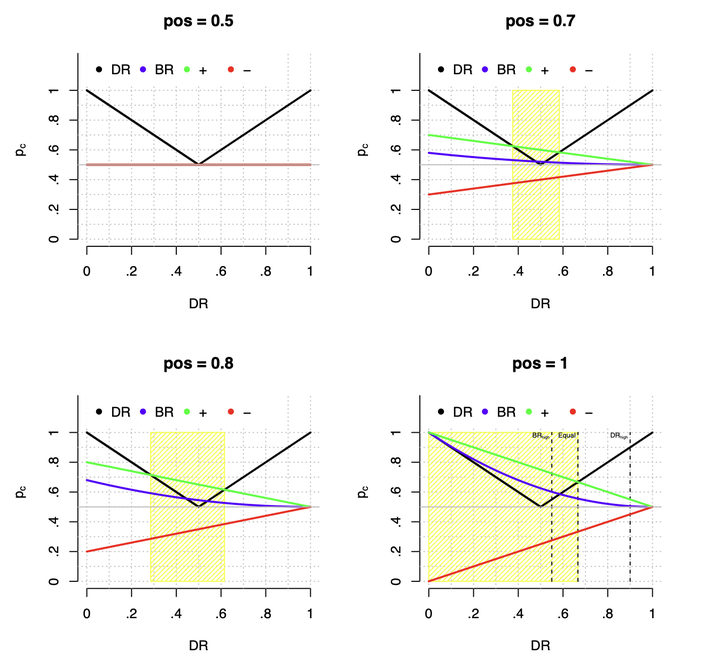Approximating rationality under incomplete information: Adaptive inferences for missing cue values based on cue-discrimination

Abstract
In a highly uncertain world, individuals often have to make decisions in situations with incomplete information. We investigated in three experiments how partial cue information is treated in complex probabilistic inference tasks. Specifically, we test a mechanism to infer missing cue values that is based on the discrimination rate of cues (i.e., how often a cue makes distinct predictions for choice options). We show analytically that inferring missing cue values based on discrimination rate maximizes the probability for a correct inference in many decision environments and that it is therefore adaptive to use it. Results from three experiments show that individuals are sensitive to the discrimination rate and use it when it is a valid inference mechanism but rely on other inference mechanisms, such as the cues’ base-rate of positive information, when it is not. We find adaptive inferences for incomplete information in environments in which participants are explicitly provided with information concerning the base-rate and discrimination rate of cues (Exp. 1) as well as in environments in which they learn these properties by experience (Exp. 2). Results also hold in environments of further increased complexity (Exp. 3). In all studies, participants show a high ability to adaptively infer incomplete information and to integrate this inferred information with other available cues to approximate the naïve Bayesian solution.